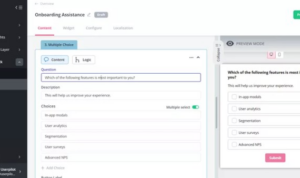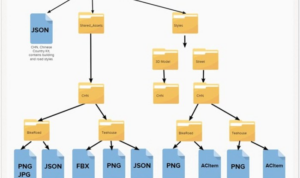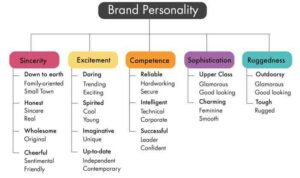Building Brand Loyalty takes center stage in the business world, where creating lasting connections is key. Dive into the strategies and benefits of fostering brand loyalty for a competitive edge.
Importance of Building Brand Loyalty

Building brand loyalty is crucial for businesses as it helps in creating a strong connection with customers, leading to repeat purchases and advocacy. When customers are loyal to a brand, they are more likely to choose it over competitors, even if the price is higher. This can result in increased customer retention, higher profitability, and a positive brand image in the market.
Examples of Successful Companies with Strong Brand Loyalty
- Apple: Known for its loyal customer base who eagerly await new product releases and updates.
- Nike: Has built a strong emotional connection with customers through its marketing campaigns and quality products.
- Starbucks: Customers often exhibit high levels of brand loyalty due to the unique coffee experience and rewards program.
Impact of Brand Loyalty on Customer Retention and Profitability
- Increased Customer Retention: Brand loyal customers are more likely to stick with a company, reducing churn rates and increasing lifetime value.
- Higher Profitability: Loyal customers tend to spend more, buy more often, and are less price-sensitive, leading to increased revenue and profitability.
- Positive Word of Mouth: Brand loyal customers are likely to recommend the brand to others, acting as brand advocates and attracting new customers.
Strategies for Building Brand Loyalty
Building brand loyalty is crucial for businesses to retain customers and create a strong foundation for growth. Let’s explore various strategies that companies can implement to foster brand loyalty among consumers.
Excellent Customer Service
Providing exceptional customer service is one of the most effective ways to build brand loyalty. By ensuring that customers have a positive experience every time they interact with your brand, you can create a loyal customer base that is more likely to return and recommend your products or services to others.
- Responding promptly to customer inquiries and addressing any issues or concerns in a timely manner.
- Personalizing the customer experience by offering tailored recommendations and incentives based on their preferences and purchase history.
- Training employees to deliver top-notch service and prioritize customer satisfaction at every touchpoint.
Loyalty Programs
Implementing a loyalty program can incentivize customers to continue engaging with your brand and make repeat purchases. These programs often reward customers for their loyalty through exclusive discounts, perks, or rewards points that can be redeemed for future purchases.
- Creating a tiered loyalty program that offers increasing benefits as customers reach higher levels of loyalty.
- Encouraging customers to refer friends and family members to join the loyalty program, further expanding brand reach and loyalty.
- Utilizing data and analytics to track customer behavior and preferences, allowing for personalized rewards and offers.
Brand Advocacy
Empowering loyal customers to become brand advocates can significantly boost brand loyalty and awareness. Brand advocates are customers who actively promote your brand to others, sharing positive experiences and recommendations that can influence purchasing decisions.
- Engaging with brand advocates through social media, events, and other platforms to amplify their voices and reach a wider audience.
- Encouraging user-generated content by showcasing customer testimonials, reviews, and photos that highlight positive experiences with your brand.
- Rewarding brand advocates with exclusive perks, early access to new products, or opportunities to collaborate on special projects.
Benefits of Brand Loyalty: Building Brand Loyalty
Building brand loyalty comes with a plethora of advantages that can significantly impact a company’s success in the market. Let’s delve into the benefits of having loyal customers and how it can enhance a brand’s reputation and profitability.
Enhanced Customer Retention
- Loyal customers are more likely to continue purchasing from a brand, leading to increased customer retention rates.
- Repeat business from loyal customers can provide a steady revenue stream for the company.
Word-of-Mouth Marketing, Building Brand Loyalty
- Loyal customers are more inclined to recommend the brand to friends and family, acting as brand advocates.
- Positive word-of-mouth marketing from loyal customers can attract new customers and expand the brand’s reach organically.
Competitive Edge
- Brand loyalty helps differentiate a company from its competitors in a crowded market.
- By fostering strong relationships with customers, a brand can create a competitive edge based on customer loyalty and trust.
Measuring Brand Loyalty

Measuring brand loyalty is crucial for businesses to understand their customers’ level of commitment and satisfaction. By tracking and analyzing brand loyalty metrics, companies can identify areas for improvement and tailor their strategies to enhance customer retention and loyalty.
Methods for Measuring Brand Loyalty
- Net Promoter Score (NPS): NPS measures the likelihood of customers to recommend a brand to others. It categorizes customers as promoters, passives, or detractors based on their responses.
- Customer Surveys: Surveys can gather valuable feedback from customers regarding their satisfaction, loyalty, and overall experience with the brand.
Key Performance Indicators (KPIs) for Brand Loyalty
- Customer Retention Rate: This KPI measures the percentage of customers who continue to purchase from the brand over a specified period.
- Repeat Purchase Rate: It indicates the frequency at which customers make repeat purchases, reflecting their loyalty towards the brand.
- Customer Lifetime Value (CLV): CLV estimates the total revenue a customer is expected to generate over their lifetime as a customer of the brand.
Importance of Tracking Brand Loyalty Metrics
Tracking and analyzing brand loyalty metrics is essential for business growth as it provides valuable insights into customer behavior, preferences, and satisfaction levels. By understanding these metrics, businesses can make informed decisions to enhance customer loyalty, improve retention rates, and drive overall profitability.





